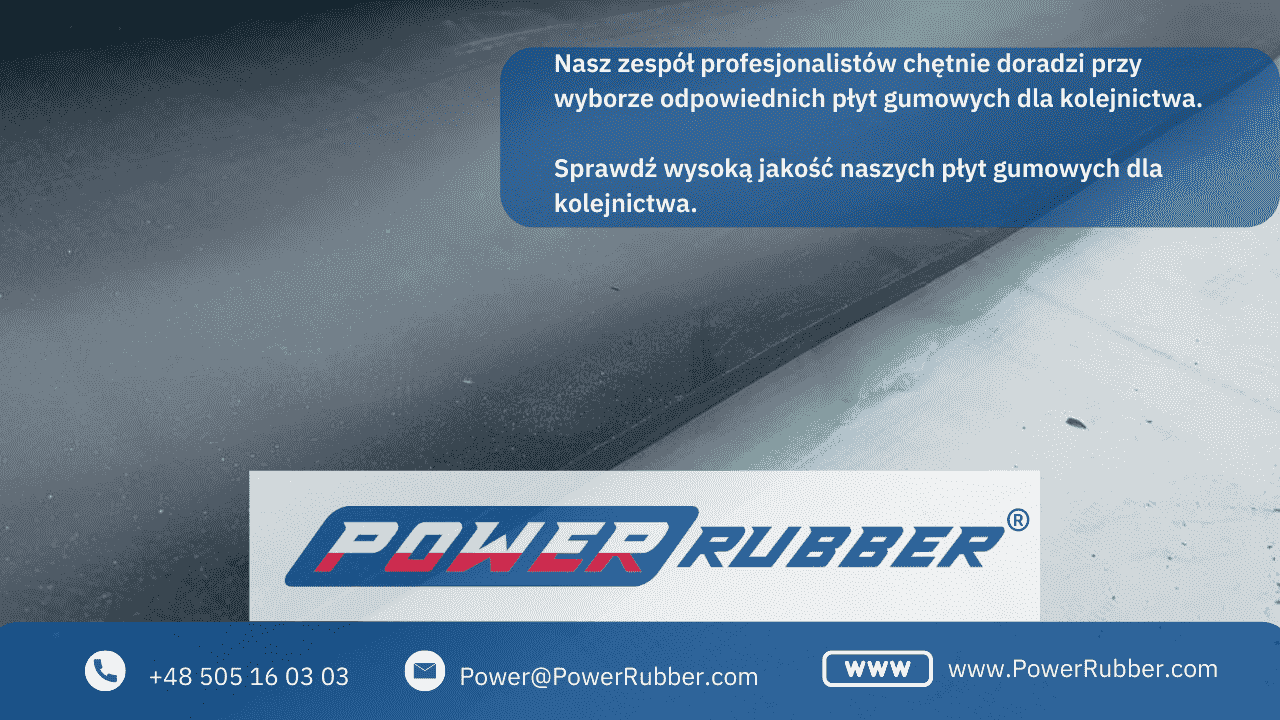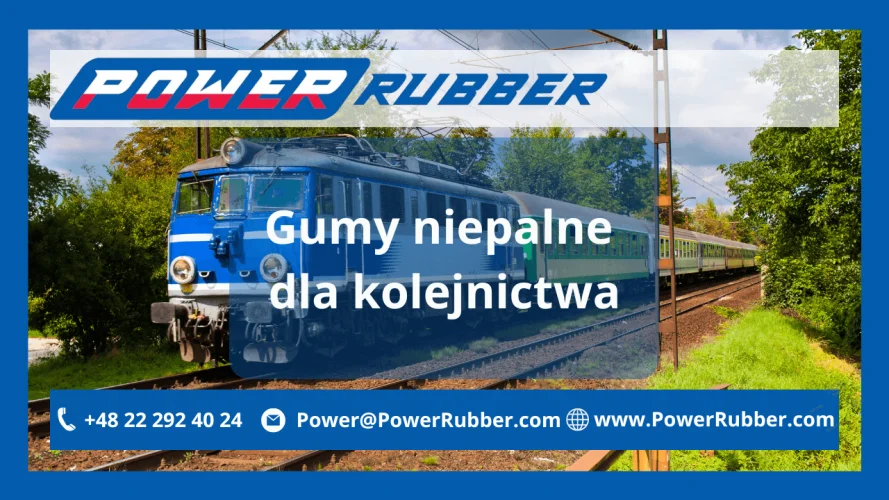Non-flammable rubbers for railways
The railway industry is very specific, demanding and often needs higher standards due to the applicable safety regulations. One of the most important restrictions in this sector is the need to ensure rigorous fire protection. Non-flammable rubber will perfectly cope with such conditions, therefore it is commonly used in railways. Products made of this synthetic material include gaskets, insulators, but also layers of plates or other types of surfaces that protect the workbenches from possible contact with sparks or flames, even unintentionally created during operation.
High-quality rubber with a mandatory certificate
Non-flammable materials are used wherever there is even the slightest risk of fire, and safety regulations are strictly regulated by applicable standards. In such situations, the law requires the use of specialized materials, such as non-flammable rubber. This concept must not be confused with the melting point or any other strength. The flammability of the material, i.e. the material's ability to sustain a burning fire, is always determined on the basis of the generally accepted Euroclass classification and should be clearly marked on the packaging or in the product description. Therubbers used for railways have the highest A1 or A2 index. In order to determine this measure, such products are subjected to many demanding tests, and in the experiment the manufacturer may apply for a certificate confirming the non-flammability of the material offered. This is especially important in the public transport industry, where the priority is human life and safety, as well as caring for the technical condition of vehicles. The purpose of installing special certified rubbers is, of course, to prevent the spread of a possible fire if it occurs due to too intensive use of the machine or other more random reasons. As a result, standard technical rubber would ignite immediately upon contact with fire and emit thick, acrid and dangerous black smoke. This means that thanks to appropriate prevention, it is possible to easily and, above all, effectively influence human health and even life.

The use of non-flammable rubber products
Non-flammable rubber is a commonly used material for railways and in the industry of other rail vehicles due to its properties, high strength and durability, and at the same time a relatively low price. The material is originally made of rubber by vulcanization. The original compound leads to the formation of rubber in the course of complex chemical processes of polymer particle reaction and catalyst support. The most popular form of production are ready-made products and rubber sheets such as EPDM or SBR. However, the railway industry is only one of many that use materials that are not susceptible to flames. Non-flammable seals are used, among others, in fire doors and windows to prevent the spread of fire. Such rubber products are also used as various types ofinsulators, sealing elements, sleepers for machines exposed to fire, as well as for covering with a special surface of workbenches where there is a risk of spark formation. Individual clients may have different requirements than business ones, so it is always worthwhile to find out about the subject on your own and choose the best solution. For this purpose, before buying interesting rubber elements, it is worth consulting an experienced professional from the industry who will properly select the product and material, the customer's requirements, his private needs and possibilities.

